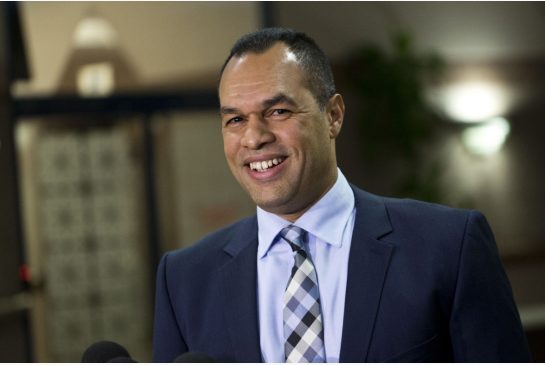Q&A: Peter Sloly, Ottawa’s next police chief, on why he became a cop and what his priorities will be
August 27, 2019

Peter Sloly, Ottawa’s next police chief has yet to be sworn in as an Ottawa police officer and isn’t expected to take the helm of the force until at least October. But one day after he was announced as the city’s next top cop, he answered questions about his policing career, leadership style and what he knows he wants to do in Ottawa.
Why did he become a police officer?
It was 1988 and his professional soccer career had just ended.
“I spent all my young life dreaming and preparing for a life of professional soccer and unfortunately that came crashing to an end in 1987 with a series of injuries,” Sloly said. Sloly had a bachelor’s degree in sociology. His mother was a social worker and his father a lawyer. His background in team sports and education and the influence of his parents’ careers led him to apply to the Toronto Social Services department, the city’s fire department and Toronto police. The cops were the first ones to call him back. “It was pretty well that simple.”
How would he describe his policing career, so far?
It was traditional in some ways, different in others and unique in a few, he said.
“I went through the same processes to get hired, I went through the same stages of probation to staff development, went through every step on the ladder through promotion.”
He spent the majority of his time in uniform doing frontline work — it’s what he loved, he said.
“That’s what I enjoyed. That’s what I did best, working in community and with community.”
He worked major investigations and major public order operations. “I worked almost everywhere in (Toronto), from the big busy downtown divisions to the northeast and northwest parts of the city.”
In addition to his time in uniform, he worked “plainclothes, major crime (which in Toronto isn’t the homicide unit), undercover drug operations — all those things that cops do — but I always came back to uniform.”
His best period as a deputy chief in Toronto was running frontline uniform officers “working 24/7, 365 (and) handling the most complex circumstances with the least amount of preparations.”
But his road to chief has been unique. “I’m an individual who has their own sense of self and their own … lived experience and that’s unique to me and it’s allowed me to see things differently and want to make a unique and personal impact on policing and broader Canadian society.”
What will be his priorities as chief?
“I am absolutely committed to the traditions of community policing and absolutely committed to advancing the legislation that requires the delivery of community policing. My best public safety and public service experiences were doing neighbourhood policing very intimately involved in neighbourhoods and that doesn’t mean it was all prevention and program development, there was a lot of that, but ultimately it led to a purpose.
“The purpose was through relationships you got the partnerships that actually solve complex problems. And through those partnerships you actually got access to more information that became intelligence, which allowed you to actually do better investigations, support better prosecutions and where there was a conviction, ensure better levels of incarceration and accountability for individuals that were criminals.
“I’m convinced that it’s the first place and the best place to build a public safety platform.”
The job description to be chief in Ottawa came with a list of priorities. Sloly will adopt those priorities and while he suspects the four core areas — to advance community policing, make progress on equity and diversity, support police members and modernize the work environment — will remain, he’ll wait until he’s chief before making any decisions to take on additional ones.
What can police officers expect of his leadership style?
He hopes people find him “approachable and transparent.”
“I don’t play poker because pretty well what’s in my head or in my heart will be on my face and coming out of my lips,” he said.
He’d rather over-communicate than leave something unsaid.
“I believe very much in the chain of command, in a hierarchical organization and one that is still based on paramilitary traditions.”
Chain of command is crucial to crisis-based operations but when not in operational mode, he’s open to communication and collaboration.
He wants officers and the community to understand the decision-making of the police service.
“I will make myself available as much as I possibly can to frontline officers, supervisors, senior NCOs, the senior leadership team and of course, to the community and the three levels of government that operate in and around Ottawa. So I suspect my first six months will be very busy with people.”
And he takes pride in being innovative and even a risk-taker. “If that meant that I was outspoken on issues I would just say that that meant I was speaking about issues people were not speaking about.”
Source: Ottawa Citizen

